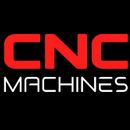The Transformative Role of Automation in Modern Fabrication

The Role of Automation in Modern Fabrication
In today's rapidly evolving manufacturing landscape, automation plays a pivotal role in transforming the fabrication industry. As companies strive to enhance efficiency, reduce costs, and improve overall productivity, automation technologies have emerged as essential tools. This article investigates how automation is reshaping the fabrication sector, focusing on its impact on efficiency, labor costs, and overall operational effectiveness.
1. Understanding Automation in Fabrication
Automation in fabrication refers to the use of technology to perform tasks with minimal human intervention. This can include machinery, control systems, and software designed to streamline production processes. The automation landscape in fabrication encompasses various technologies, such as:
- Robotics: Robotic systems are employed for repetitive tasks like welding, assembly, and material handling.
- Computer Numerical Control (CNC): CNC machines automate machining processes, allowing for precise cutting and shaping of materials.
- Automated Guided Vehicles (AGVs): AGVs transport materials and products throughout the production facility, optimizing workflow and reducing manual labor.
- Smart Manufacturing Systems: These systems leverage data analytics and IoT technology to enhance decision-making and operational efficiency.
2. Improving Efficiency
Streamlined Production Processes
Automation significantly enhances the efficiency of fabrication processes. By integrating automated systems, manufacturers can streamline production workflows, leading to faster turnaround times and reduced lead times. Key benefits include:
- Increased Throughput: Automated machinery can operate continuously, allowing for higher production volumes without compromising quality.
- Reduced Cycle Times: Automation minimizes the time required for repetitive tasks, enabling faster processing and quicker order fulfillment.
Enhanced Precision and Quality
Automation technologies, such as CNC machines and robotic arms, offer unparalleled precision in fabrication processes. This consistency in quality leads to:
- Reduced Rework: Automated systems minimize human error, resulting in fewer defects and a lower need for rework.
- Improved Product Quality: The high accuracy of automated machines ensures that products meet strict quality standards, enhancing customer satisfaction.
3. Reducing Labor Costs
Decreased Dependence on Manual Labor
One of the most significant advantages of automation in fabrication is its ability to reduce labor costs. By automating repetitive tasks, companies can:
- Optimize Workforce Allocation: Employees can focus on higher-value tasks that require human intervention, such as problem-solving and quality control, while automation handles routine operations.
- Lower Labor Costs: With automated systems performing tasks traditionally done by workers, businesses can reduce their labor expenses without sacrificing productivity.
Addressing Labor Shortages
The fabrication industry has faced challenges due to labor shortages, particularly in skilled positions. Automation helps mitigate this issue by:
- Filling the Skills Gap: Automated systems can perform complex tasks without requiring extensive human skills, allowing companies to maintain productivity even when skilled labor is scarce.
- Supporting Workforce Sustainability: By reducing the reliance on manual labor, companies can adapt to changing workforce dynamics and ensure a stable production process.
4. The Future of Automation in Fabrication
Continuous Advancements in Technology
As technology continues to advance, the role of automation in fabrication will expand even further. Future trends to watch include:
- Artificial Intelligence (AI): AI will enhance automation systems, enabling predictive maintenance, real-time monitoring, and data-driven decision-making.
- Collaborative Robots (Cobots): Cobots are designed to work alongside human operators, enhancing productivity while maintaining a safe work environment.
- Smart Manufacturing: The integration of IoT and data analytics will lead to smarter manufacturing processes, optimizing production based on real-time data.
Emphasis on Customization and Flexibility
As customer demands for personalized products grow, automation will also play a crucial role in enabling flexible manufacturing. Key developments include:
- Adaptive Manufacturing Systems: Automation technologies will evolve to accommodate quick changes in production lines, allowing for seamless transitions between different products.
- Mass Customization: Automated systems will enable manufacturers to produce customized products at scale, meeting individual customer needs without sacrificing efficiency.
Conclusion
The role of automation in modern fabrication cannot be overstated. By improving efficiency, reducing labor costs, and enhancing product quality, automation technologies are transforming the landscape of the fabrication industry. As manufacturers continue to embrace these advancements, they will not only streamline their operations but also position themselves for success in an increasingly competitive market.
Investing in automation is not just about keeping up with industry trends; it's about ensuring sustainability, adaptability, and long-term growth in a rapidly evolving manufacturing environment. As we look to the future, the integration of automation in fabrication will undoubtedly lead to a more efficient, productive, and innovative industry.


